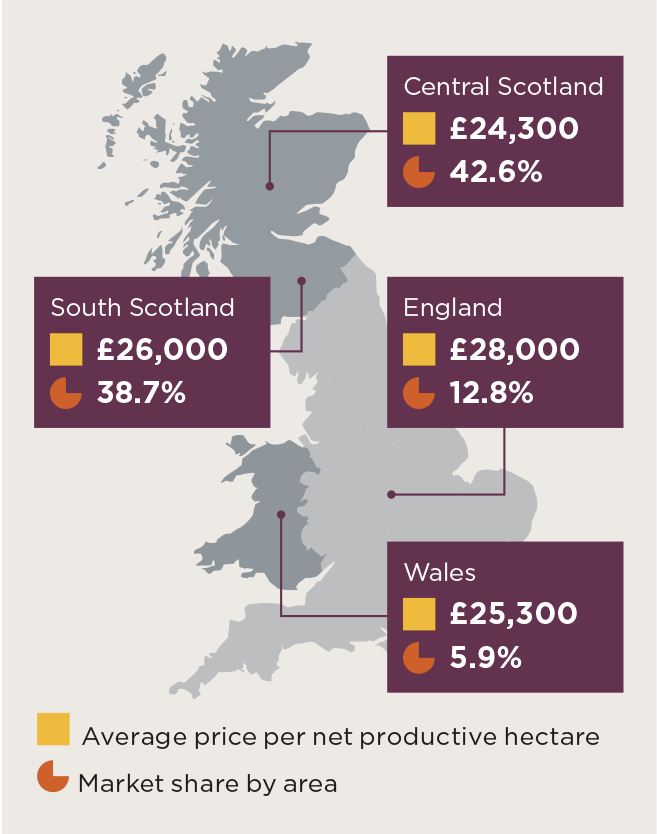Central Scotland leads in forest hectares sold despite market contraction
James Adamson
The UK forestry investment sector was not insulated from the well reported economic and fiscal challenges that impacted the wider global economy, according to Savills.
During the 2023 forest year (1 October to 30 September), weakened investor confidence led to a -68% market contraction compared with the performance of the 2022-forest year, when just over £300 million of UK forestry transacted.
Savills publication Spotlight: The UK forestry market states that just under £96m transacted during the 2023 forest year, the lowest total value of commercial forestry sold since 2016. However, at the six month point for the 2024 forest year Savills analysis suggests some level of market recovery.
“One of the attributes making forestry attractive as an investment is the defensive nature of timber as a store of value, so it quite likely we have witnessed a pause rather than a change of course in the direction of performance,” said James Adamson, Savills head of forestry investment.

(Source: Savills Research)
Between 2014 and 2023 the average gross value of commercial forestry increased by 220% to £18,500 per hectare but decreased by -8% per hectare during 2023. Also over the medium to long term UK commercial forestry has consistently outperformed other asset classes.
As is normal, Scotland recorded the highest number of forest hectares sold, accounting for over 80% of all UK sales, although there was a reduction compared to the previous year with fewer available options.
Mr Adamson continued: “The commercial forestry market was less active during the 2023 forest year, however, provisional research suggests an increase in market activity for the 2024 forest year.
“The race for land for new woodland creation has also slowed down, and certainly action is needed if the target of 17-19% forestry cover for the UK is to be met by 2050.”







